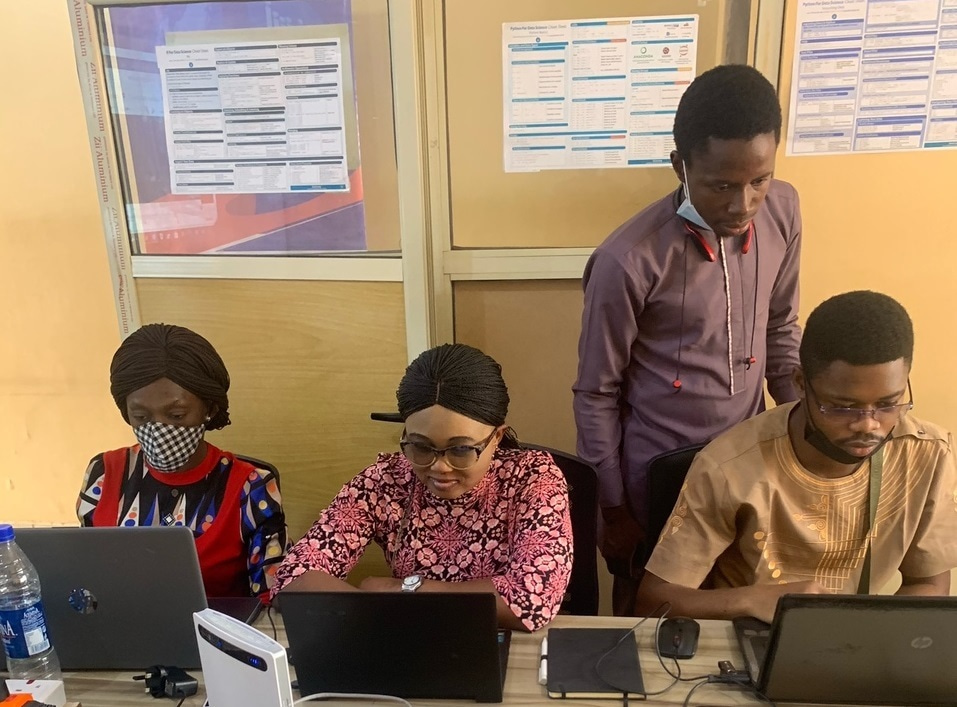2020 Early Career Researcher Training Grant – The Road to Data Science and Management
Published in Chemistry

I recently concluded my Ph.D program at the Federal University of Technology, Owerri, Nigeria, where I worked on the systematic identification of antioxidant and hepatocurative lead compounds in two Nigeria medicinal plants, that is, Zanthoxylum zanthoxyloides and Vitex doniana, using various chromatographic and spectroscopic techniques. The research also further probed the role of alkaloids as antioxidants. The ECRTG I received for Communications Chemistry allowed me to attend a Three-Months On-site training course on Data Science and Analysis, and a Six-Months Online training course on Managing Research Data to Unlock its Full Potentials, with Nature Online Masterclasses.
Data science combines domain knowledge, programming abilities, and statistical and mathematical knowledge to extract usable data - driven insights. As a result, these systems generate data that analysts and business users can employ to create commercially valuable outcomes. It entails a combination of mathematics, business skills, analytics, algorithms, and machine learning methodologies to aid in the finding of obscured facts or patterns in raw data that can be utilized to make crucial business decisions. Data management on the other hand is the process of obtaining, storing, and using data in an efficient, secure, and cost-effective manner. In an organization, handling digital data involves a diverse set of responsibilities, regulations, protocols, and procedures. The success of every science-based research work lies in the presentation, interpretation and analysis of data. Research-based Institutes and Universities need researchers with a career in data analytics and science, to maximize all the opportunities that big data offers. Proper presentation of data helps to draw conclusions and make recommendations, thereby empowering researchers with the right knowledge to make informed decisions.
The data science training I attended was designed to train for four major career skills: Data Scientists, Data Analysts, Database Manager, and Data Visualization expert. Four different courses were taught by experts, namely Python and R programming, which includes Basic to Advanced Python Programming for Data Science; Basic to Advanced R programming for Data Science; Machine Learning for Predictive Analytics; Deep Learning for Predictive Analytics; Natural Language Processing; Artificial Intelligence (Conversational Al); Deployment of Data Science, Applications for End Users, and Database Management Programming with SQL. Other courses covered included Data Analysis using SPSS, and Microsoft Power BI. I also attended a Six-Months Nature Masterclasses online course, where I acquired various skills, such as Learning the advantages of properly managing research data; Understanding how to establish and maintain a data management plane; Learn how to apply best practices to data organization, storage, archiving, and quality assurance, as well as analyze the various possibilities for sharing research data.
The data science program has exposed me to various technical and analytical skills that will enable me to make high-quality decisions, that will produce quality research outputs. The on-site training also provided me with a better platform, where I met with other experts in the field of Data Science and Analysis. The network established at the training has gone a long way in enhancing my analytical skills, interpretation and informed scientific decisions.
My goals for attending the training are to integrate my area of research in my Ph.D with Data Science, to enhance my research output and be better equipped to contribute to Science and Technological development in my institution, country and world at large.
Follow the Topic
-
Communications Chemistry

An open access journal from Nature Portfolio publishing high-quality research, reviews and commentary in all areas of the chemical sciences.
Related Collections
With Collections, you can get published faster and increase your visibility.
f-block chemistry
Publishing Model: Open Access
Deadline: Feb 28, 2026
Experimental and computational methodology in structural biology
Publishing Model: Open Access
Deadline: Apr 30, 2026


Please sign in or register for FREE
If you are a registered user on Research Communities by Springer Nature, please sign in